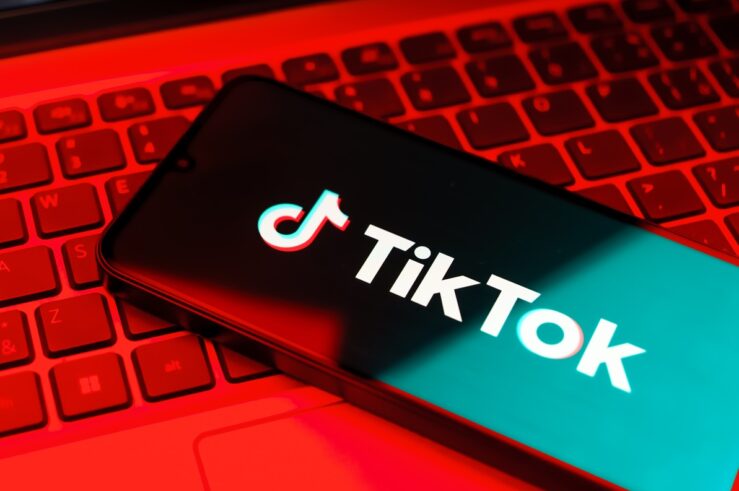AI Patent Policy Should Promote Economic Growth and Innovation
Artificial intelligence is “technology that enables computers and machines to simulate human learning, comprehension, problem solving, decision making, creativity and autonomy.” AI will play an increasingly important role in driving innovation and economic growth. Strong patent protection can incentivize AI-related inventions and the transmission of AI-specific technological improvements throughout the economy. Accordingly, the Trump administration may ... AI Patent Policy Should Promote Economic Growth and Innovation
Are TikTok’s Days Numbered?
The U.S. Supreme Court will on Jan. 10 hear an appeal of a Dec. 6 decision from the U.S. Circuit Court of Appeals for the D.C. Circuit upholding a 2024 federal law requiring Chinese company ByteDance to divest itself of the TikTok platform. The law will take effect Jan. 19, unless the Supreme Court strikes ... Are TikTok’s Days Numbered?
The FTC Takes Action to Raise Wine and Spirit Prices
In a 3-2 party-line vote, a divided Federal Trade Commission (FTC) moved Dec. 18 to seek a federal district court injunction against Southern Glazer’s Wine and Spirits LLC, the largest U.S. distributor of wines and spirits. The FTC complaint alleges that Southern’s discounting practices discriminated against small independent businesses, violating the Robinson-Patman Act (RPA), to ... The FTC Takes Action to Raise Wine and Spirit Prices
A Possible Federal Role in Reducing State Red Tape
The incoming Trump administration’s commitment to reduce extremely costly regulatory burdens will feature the new Department of Government Efficiency’s (DOGE) evaluation of federal overregulation. But economic research indicates that harmful regulatory bloat exists at the state level, as well. The new administration may wish to propose solutions to state regulatory overreach that harms many Americans. Generic Overregulation at the State ... A Possible Federal Role in Reducing State Red Tape
Policy Without Policymaking: Australia’s New Digital Competition Regime Is Primarily Designed to Get Through Parliament
The Australian government’s announcement earlier this month of a proposed new competition regime for digital marketplaces has a long history. The Australian Competition and Consumer Commission (ACCC) has been investigating digital-market competition for nearly a decade. The latest iteration of the ACCC’s digital platforms inquiry has published nine interim reports, with a tenth report to ... Policy Without Policymaking: Australia’s New Digital Competition Regime Is Primarily Designed to Get Through Parliament
The Hidden Wealth of Payment Cards: How Innovations in Payments Transform Society
It’s a dreary December morning and, on your way to work, you stop at a coffee shop. There are only three people in line, so you assume you’ll be served quickly. But after a few minutes, you notice the customer at the front of the queue fumbling as they laboriously count out the exact change. ... The Hidden Wealth of Payment Cards: How Innovations in Payments Transform Society
Kids and Online Safety: An International End-of-Year Review
As the year comes to a close, it is worth reviewing how governments around the world—including at both the state and federal level in the United States—have approached online regulation to protect minors. I will review several of the major legislative and regulatory initiatives, with brief commentary on the tradeoffs involved in each approach. Age ... Kids and Online Safety: An International End-of-Year Review
Labor Antitrust: A Solution in Search of Evidence
The growing focus on labor-market power and antitrust enforcement has sparked important debates about both the empirical foundations and practical implementation of these emerging policy priorities. In a recent piece for ProMarket, Eric Posner argues that overwhelming academic evidence supports expanding antitrust scrutiny of labor markets—criticizing, in particular, the skepticism expressed by the Federal Trade ... Labor Antitrust: A Solution in Search of Evidence
CFPB’s Overdraft Fee Price Controls Would Be Counterproductive
The Consumer Financial Protection Bureau (CFPB) announced a final rule last week to impose price controls and onerous disclosure rules on overdraft fees charged by those banks and credit unions with assets of more than $10 billion. At first glance, such interventions might seem like a win for consumers, particularly those with low incomes who ... CFPB’s Overdraft Fee Price Controls Would Be Counterproductive
AI Hallucinations, GDPR, and the Importance of Cautious Optimism
The General Data Protection Regulation (GDPR), the EU’s data-protection law, requires accuracy in processing personal data. But generative-AI services, such as large language models (LLM), may “hallucinate” or reflect information that is false but widely spread. On one hand, such inaccuracies may seem like an inherent feature of the technology. On the other, some major ... AI Hallucinations, GDPR, and the Importance of Cautious Optimism
It May Be Time to Consider Reforming Global Competition Policy
As the incoming Trump administration contemplates ways to promote U.S. economic growth and innovation, it may wish to consider two possible new global competition-policy initiatives. These actions, if successful, could help protect American (and foreign) firms from foreign government impediments to effective competition. Antitrust Around the World Antitrust law (called competition law in other countries) ... It May Be Time to Consider Reforming Global Competition Policy
Reclaiming Antitrust
The United States is the birthplace of antitrust, starting with the enactment of the Sherman Antitrust Act in 1890. During the late 19th and early 20th century, cartels were common in Europe, while U.S. antitrust enforcers unraveled them. Only after World War II did European countries incrementally adopt competition law in various forms. Since that ... Reclaiming Antitrust
















